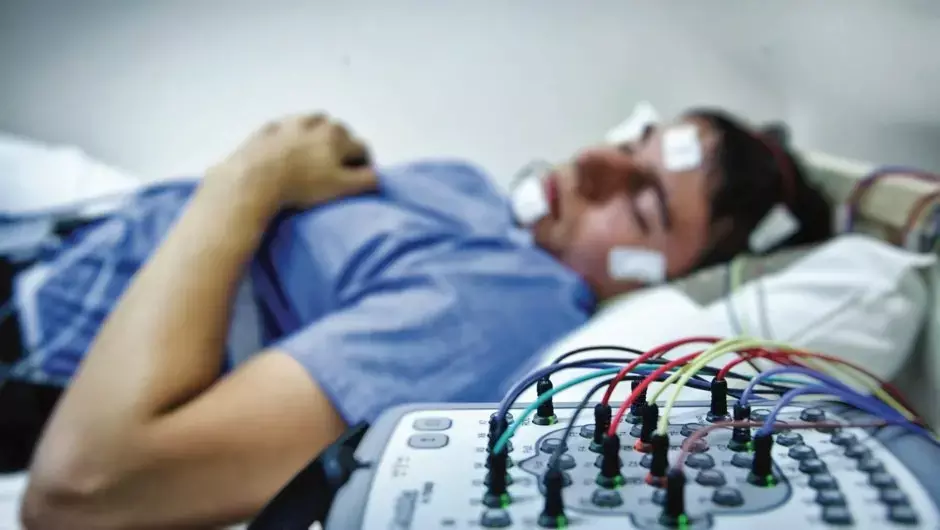- Home
- Medical news & Guidelines
- Anesthesiology
- Cardiology and CTVS
- Critical Care
- Dentistry
- Dermatology
- Diabetes and Endocrinology
- ENT
- Gastroenterology
- Medicine
- Nephrology
- Neurology
- Obstretics-Gynaecology
- Oncology
- Ophthalmology
- Orthopaedics
- Pediatrics-Neonatology
- Psychiatry
- Pulmonology
- Radiology
- Surgery
- Urology
- Laboratory Medicine
- Diet
- Nursing
- Paramedical
- Physiotherapy
- Health news
- Fact Check
- Bone Health Fact Check
- Brain Health Fact Check
- Cancer Related Fact Check
- Child Care Fact Check
- Dental and oral health fact check
- Diabetes and metabolic health fact check
- Diet and Nutrition Fact Check
- Eye and ENT Care Fact Check
- Fitness fact check
- Gut health fact check
- Heart health fact check
- Kidney health fact check
- Medical education fact check
- Men's health fact check
- Respiratory fact check
- Skin and hair care fact check
- Vaccine and Immunization fact check
- Women's health fact check
- AYUSH
- State News
- Andaman and Nicobar Islands
- Andhra Pradesh
- Arunachal Pradesh
- Assam
- Bihar
- Chandigarh
- Chattisgarh
- Dadra and Nagar Haveli
- Daman and Diu
- Delhi
- Goa
- Gujarat
- Haryana
- Himachal Pradesh
- Jammu & Kashmir
- Jharkhand
- Karnataka
- Kerala
- Ladakh
- Lakshadweep
- Madhya Pradesh
- Maharashtra
- Manipur
- Meghalaya
- Mizoram
- Nagaland
- Odisha
- Puducherry
- Punjab
- Rajasthan
- Sikkim
- Tamil Nadu
- Telangana
- Tripura
- Uttar Pradesh
- Uttrakhand
- West Bengal
- Medical Education
- Industry
EEG-Guided Anesthesia for Cardiac Surgery fails to Reduce Postoperative Delirium

A recent study published in the Journal of American Medical Association examined the impact of using EEG-guided anesthesia on the incidence of postoperative delirium in older adults undergoing cardiac surgery. This randomized clinical trial determined whether adjusting anesthesia levels based on real-time EEG readings could help in lowering the chances of delirium following surgery.
The trial was conducted at four hospitals in Canada and included a total of 1,140 adults who were of 60 years or older who were scheduled for cardiac surgery. The study spanned from December 2016 to February 2022 with follow-ups continuing until February 2023. The participants were randomly assigned to one of two groups, where one group received anesthesia guided by EEG readings, while the other received the usual care.
The occurrence of delirium within the first five days after surgery was the primary outcome measured. Delirium affected 18.15% of patients in the EEG-guided group and 18.10% in the usual care group. This minute difference of 0.05% indicated no significant reduction in delirium from using EEG guidance.
This study also looked at secondary outcomes such as the length of stay in intensive care and the hospital, along with serious adverse events like intraoperative awareness and 30-day mortality. The results showed no significant differences between the two groups in these secondary outcomes. Both the groups had similar lengths of stay in the ICU and hospital with no reports of intraoperative awareness.
While the EEG-guided group had a slightly lower median volatile anesthetic concentration and spent less time with EEG suppression when compared to the usual care group, these differences did not translate into a decrease in the postoperative delirium. The EEG-guided group had a median volatile anesthetic concentration of 0.66 when compared to 0.80 in the usual care group. The total time spent with EEG suppression was also lower in the EEG-guided group (4.0 minutes) than the usual care group (11.7 minutes).
The medical complications occurred in 11.3% of the EEG-guided group and 12.7% of the usual care group which indicated a mild but statistically insignificant difference. Also, the mortality within 30 days post-surgery was lower in the EEG-guided group (1.4%) than the usual care group (2.3%), which was not statistically significant. Overall, the study found that among older adults who undergo cardiac surgery with EEG-guided anesthesia to minimize EEG suppression do not experience decrease in the incidence of postoperative delirium.
Reference:
Deschamps, A., Ben Abdallah, A., Jacobsohn, E., Saha, T., Djaiani, G., El-Gabalawy, R., Overbeek, C., Palermo, J., Courbe, A., Cloutier, I., Tanzola, R., Kronzer, A., Fritz, B. A., Schmitt, E. M., Inouye, S. K., Avidan, M. S., Denault, A., Mazer, D., … Turgeon, A. (2024). Electroencephalography-Guided Anesthesia and Delirium in Older Adults After Cardiac Surgery. In JAMA (Vol. 332, Issue 2, p. 112). American Medical Association (AMA). https://doi.org/10.1001/jama.2024.8144
Neuroscience Masters graduate
Jacinthlyn Sylvia, a Neuroscience Master's graduate from Chennai has worked extensively in deciphering the neurobiology of cognition and motor control in aging. She also has spread-out exposure to Neurosurgery from her Bachelor’s. She is currently involved in active Neuro-Oncology research. She is an upcoming neuroscientist with a fiery passion for writing. Her news cover at Medical Dialogues feature recent discoveries and updates from the healthcare and biomedical research fields. She can be reached at editorial@medicaldialogues.in
Dr Kamal Kant Kohli-MBBS, DTCD- a chest specialist with more than 30 years of practice and a flair for writing clinical articles, Dr Kamal Kant Kohli joined Medical Dialogues as a Chief Editor of Medical News. Besides writing articles, as an editor, he proofreads and verifies all the medical content published on Medical Dialogues including those coming from journals, studies,medical conferences,guidelines etc. Email: drkohli@medicaldialogues.in. Contact no. 011-43720751


